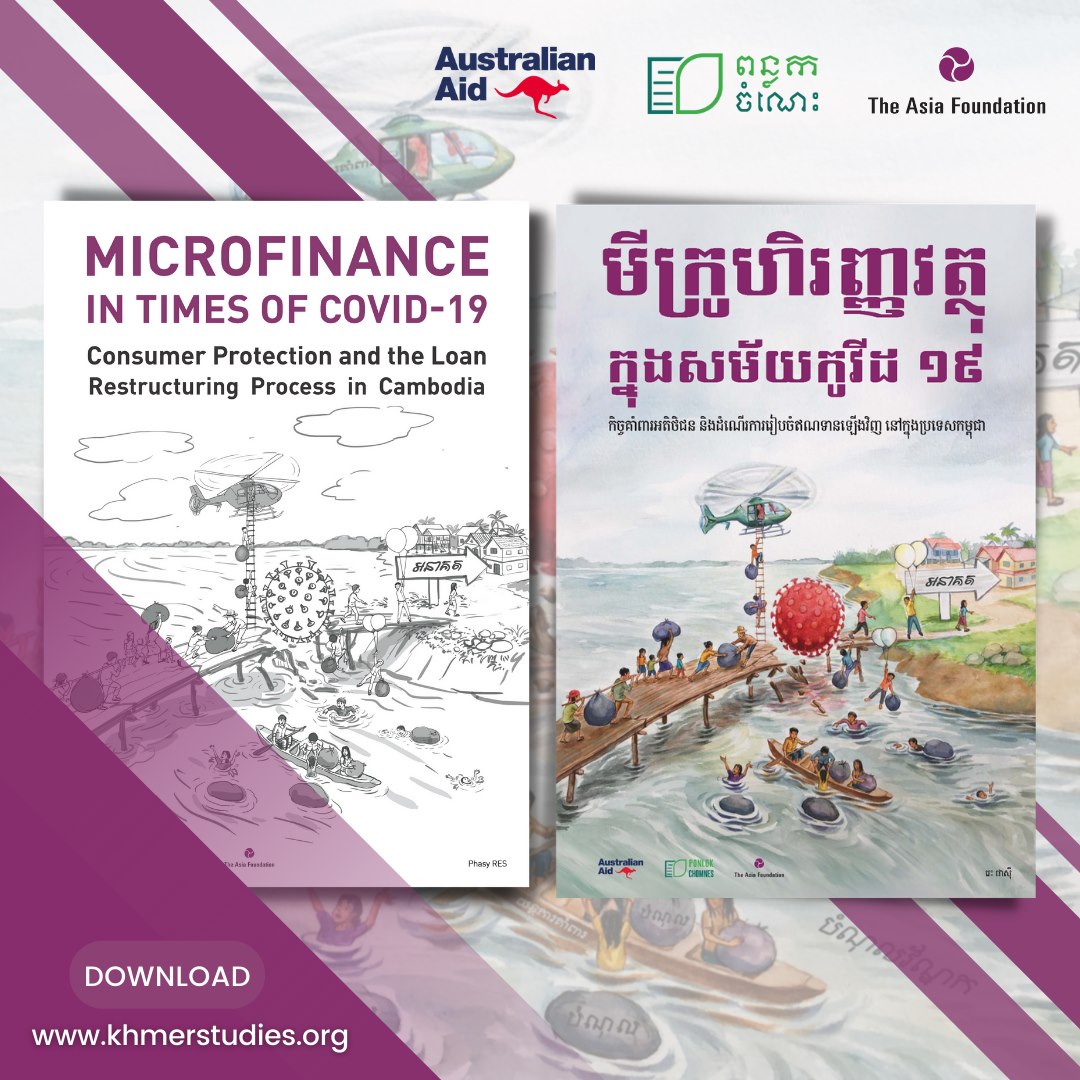
Microfinance in Times of COVID-19: Consumer Protection and the Loan Restructuring Process in Cambodia
The Center for Khmer Studies (CKS), one of Ponlok Chomnes Core Partners, has recently released “Microfinance in Times of COVID-19: Consumer Protection and the Loan Restructuring Process in Cambodia,” a new report that illustrates how COVID-19 has impacted vulnerable borrowers and their debt, as well as how financial actors’ have responded to this crisis. This study is unique in Cambodia for its depth and methodological rigor; social science methods are applied to derive substantial and innovative qualitative findings.
More than 2.2 million Cambodians have taken loans from microfinance institutions (MFIs), amounting to over $8.1 billion USD in outstanding loans. Since the microfinance sector first took off in Cambodia two decades ago, it has facilitated financial inclusion for many, including lower-income women and rural populations. But as the reach of MFIs has drastically expanded, so has a worrisome trend of indebtedness and financial precarity amongst some of the country’s most vulnerable. The COVID-19 pandemic has exacerbated this trend, calling for answers to two pressing questions: How many vulnerable people are negatively impacted by this trend? And does this trend pose a systemic risk, which could cascade rapidly to affect hundreds of thousands of Cambodians, if not more?
The lead researcher and author of the report, Ms. RES Phasy, interviewed households across Battambang, Siem Reap, Kampong Chhnang, and Phnom Penh to understand how COVID-19 intersects with other forms of economic vulnerability, including concerning levels of household over-indebtedness. The report also includes the MFI perspective, investigating how the sector has responded to the crisis and concludes with recommendations for stronger protections for low-income households caught in cycles of vulnerability. This study focuses on a small sample of vulnerable households in order to gain a deeper understanding of their challenges. It is not intended to be extrapolated to the microfinance sector at large, yet the findings – corroborated by many related reports on the sector – point to a worrisome trend that cannot be ignored.
Fortunately, the study did find some cause for optimism. MFIs have adapted their policies to support borrowers affected by the pandemic and, combined with ad-hoc governmental financial assistance and local kinship support networks, some groups of borrowers have managed to weather the crisis thus far. However, due to a number of factors uncovered by this research, lead researcher Ms. RES writes that “most vulnerable households that we interviewed cannot use the combination of these mechanisms.” She continues that, “[i]t is possible these households are sinking deeper into debt.”
Ultimately, this research finds that there is an urgent need to provide stronger, faster-acting, and higher-quality protection to the most vulnerable borrowers, both to mitigate vulnerability at the household level and to protect the microfinance system at large. As Mr. NGO Natharoun, Director of the Center for Khmer Studies, notes, “Cambodia has the potential to rebuild a more equitable economy post-COVID-19. The microfinance sector may refocus on its founding principles to facilitate greater financial inclusion and reduce income inequality while continuing to be profitable. We hope this research will help not only explain the complexity required to initiate a sector change but also why rapid measures such as improved consumer protection policies can further prevent people from falling into poverty and aid Cambodia’s post-COVID-19 recovery.”
This study was conducted by the Center for Khmer Studies with funding from the Australian Government Department of Foreign Affairs and Trade (DFAT) through The Asia Foundation’s Ponlok Chomnes Program.
Download the report: Microfinance in Times of COVID-19: Consumer Protection and the Loan Restructuring Process in Cambodia





